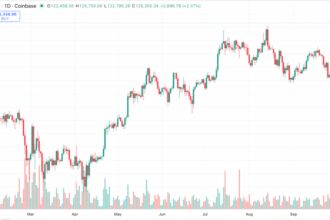The long-awaited cryptocurrency revolution on Wall Street is finally materializing. In a watershed moment for digital asset investing, the U.S. Securities and Exchange Commission has dramatically accelerated its approval process for cryptocurrency exchange-traded funds (ETFs), with more than 15 new products slated to hit markets by mid-2025.
“We’re witnessing the normalization of crypto as an asset class,” explains Michael Sonnenshein, CEO of Grayscale Investments, whose Bitcoin ETF now manages over $21 billion in assets. “What was unthinkable three years ago is now becoming routine regulatory business.”
The SEC’s newfound efficiency follows intense pressure from both industry leaders and Congressional oversight committees, which had criticized the agency’s previously inconsistent approach to digital asset regulation. SEC Chair Gary Gensler, once viewed as crypto-skeptical, has overseen a remarkable policy evolution that now emphasizes investor access alongside traditional protection mandates.
BlackRock’s Ethereum Strategy ETF, launched earlier this year, has already attracted $4.3 billion in assets under management, demonstrating institutional appetite for regulated crypto exposure. “Traditional finance is no longer asking if they should participate in crypto markets, but how quickly they can develop competitive products,” notes Catherine Wood, CEO of ARK Invest, whose own crypto ETF applications are among those in the accelerated queue.
The streamlined approval process includes a standardized disclosure framework addressing previous regulatory concerns around market manipulation, custody solutions, and valuation methodologies. Perhaps most significantly, the SEC now accepts crypto market data from exchanges meeting specific surveillance requirements—a technical but crucial shift that has unblocked numerous pending applications.
Investors have responded enthusiastically. Monthly inflows to existing crypto ETFs reached $7.2 billion in August 2025, according to data from CoinShares, marking the strongest capital flows since their introduction. This surge comes as digital assets have recovered from their 2022 downturn, with Bitcoin trading near $98,000 and total cryptocurrency market capitalization approaching $3.4 trillion.
Not everyone views the regulatory pivot positively. Consumer watchdog groups including Better Markets continue raising concerns about crypto’s volatility and accessibility. “Creating easier on-ramps to speculative assets doesn’t necessarily serve the public interest,” argues Dennis Kelleher, the organization’s president. “The regulatory pendulum has swung too far toward industry accommodation.”
Supporters counter that regulated ETF products actually enhance investor protection by eliminating direct exposure to unregulated exchanges and providing transparent pricing mechanisms. “These products democratize access while adding guardrails,” explains Hester Peirce, an SEC commissioner who had long advocated for crypto ETF approvals.
The upcoming wave includes specialized products tracking privacy coins, DeFi indexes, and even ETFs with yield-generating components from staking—highlighting how quickly the market is evolving beyond simple Bitcoin exposure. Industry analysts project crypto ETF assets could exceed $100 billion by 2026 if current trajectory holds.
For everyday investors, these developments represent unprecedented access to an asset class previously restricted to the technically savvy or institutional players. The transformation also signals crypto’s growing legitimacy within traditional financial frameworks, potentially bridging the longstanding divide between digital asset enthusiasts and conventional investment channels.
Will this regulatory evolution finally cement cryptocurrency’s place in mainstream investment portfolios? As these products proliferate across trading platforms, that question moves from theoretical debate to practical reality.
For more financial insights, visit CO24 Business or stay updated with CO24 Breaking News.










